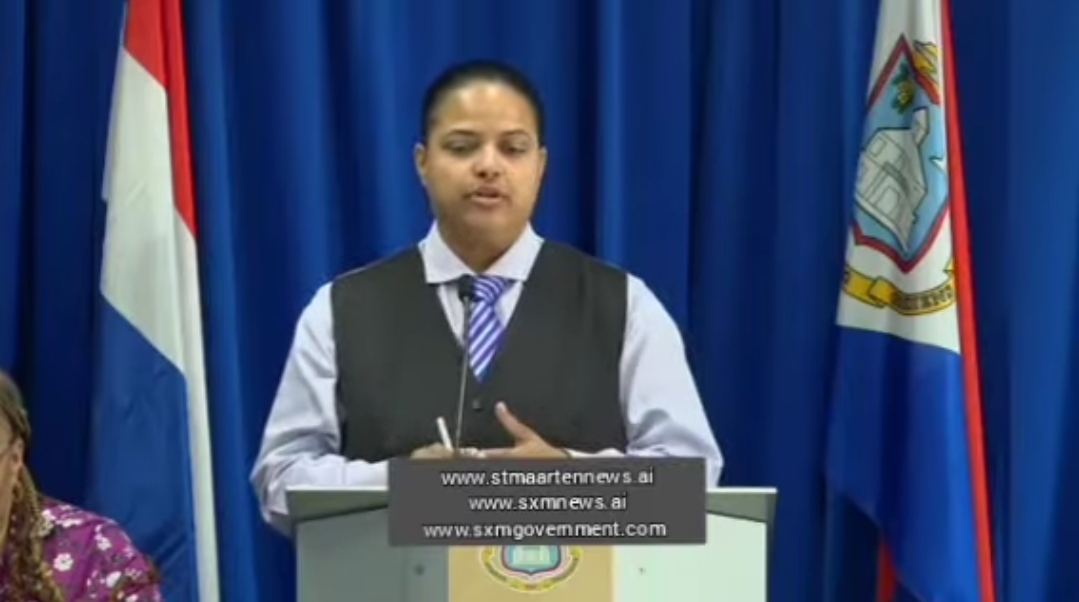Video 4 Government Oversight Catholic And Private Schools, Limits on Subsidy Oversight for Schools, Teacher Permit Delays
Minister Clarifies Government Oversight of Catholic and Private Schools
During the Council of Ministers press briefing, Mr. Emil Lee of Island 92 raised concerns about a recent media report regarding unrest among teachers at St. Dominic High School.
He asked the Minister of Education for clarity on the government’s oversight over Catholic and other private schools.
The Minister acknowledged the public confusion. He explained that the education system operates under three classifications: public schools, subsidized schools, and fully private institutions.

Public schools fall directly under the ministry’s control. However, subsidized schools—like St. Dominic—do not. “Over the decades, we allowed for private individuals or organizations to establish school boards and receive subsidies,” he said.
Although originally labeled as semi-private, the Minister stated, “they are essentially fully subsidized and therefore should be considered public in nature.”
Nonetheless, the ministry holds no operational control over these subsidized schools. “We develop policy, not daily management,” he emphasized.

To improve oversight, the ministry is introducing an education supervision law in Q3 of 2025. This legislation aims to increase accountability without infringing on school board autonomy.
The Minister described the situation at St. Dominic as “disheartening,” especially as an alumnus.
However, he stressed that the issue lies with the school board, educators, and parents. “Ultimately, the students suffer most,” he said. He encouraged stakeholders to engage in self-reflection and dialogue.

In summary, while the ministry distributes public funds to these schools, it cannot intervene in staffing or internal matters.
Yet, the upcoming supervision law aims to close that accountability gap.
“It’s time we acknowledge these are publicly funded institutions, and with that comes public responsibility,” he concluded.
Minister Confirms Current Limits on Subsidy Oversight for Schools
Following up, Mr. MLE asked the Minister of Education about conditions tied to government subsidies for semi-private schools.
He questioned whether the ministry, as the funder, holds any leverage to influence school management—particularly at St. Dominic.

“Yes, one would hope,” the Minister responded, noting that this is a recurring concern, even raised by him while serving as a Member of Parliament.
“Currently, under the subsidy ordinance, the only real requirement is financial reporting. That’s it. There’s no further influence granted to the ministry.”
He admitted this limitation is problematic, especially considering the scale of public funds involved.
“This is public money. We need to be honest about what that means in terms of accountability,” he stated.
The lack of conditions—outside of basic financial disclosure—means that schools operate with near-complete autonomy, regardless of performance or internal issues.
However, he reassured the public that reform is on the way. The Ministry is preparing the “Education Supervision Law,” expected to reach Parliament in Q3 of 2025.
This law will introduce academic and operational oversight mechanisms. “It won’t give us daily control, but it will allow us to hold schools to higher standards,” he explained.
In addition to academic accountability, the new law will incorporate provisions addressing hair discrimination—an issue the Minister has raised in Parliament.
Rather than drafting a separate ordinance, the Ministry decided to include these protections within the supervision framework to streamline legislative processes.
He emphasized that these measures are part of a broader strategy to restructure education around students’ needs.
“We’re trying to reshape the system, and we can’t do that if schools operate in silos while depending on public funds,” he said.

The Minister concluded by reinforcing the importance of transparency and accountability.
“As they say in the Netherlands: wie betaalt, bepaalt—who pays, decides. It’s time to apply that principle here too.”
Teacher Permit Delays Under Review by Three Ministries
The third part of Mr. MLE’s inquiry addressed teacher shortages and delays in work permit approvals.

He cited school feedback that work permits often arrive too late, disrupting staffing at the start of the school year.
The Minister acknowledged the problem. “Yes, that’s a concern we’ve heard repeatedly from school boards,” he stated. “And we’re actively working on a solution.”
To address the issue, the Ministries of Education, Justice, and VSA (Public Health, Social Development, and Labor) are preparing a joint resolution.

The three ministers plan to meet after the conclusion of the 2025 budget deliberations.
Their goal is to streamline the work permit process specifically for education-related positions.
In the interim, a temporary process exists. Schools can submit pending work permit applications to the Ministry of ECYS,
which then forwards them to the Ministry of Justice for expedited review.
“The Minister of Justice has responded quickly to those forwarded applications,” he noted.
https://sxmnews.ai/from-bid-rigging-to-land-stealing-story-of-christopher-emmanuels-crash-out/
Still, he admitted the system remains fragmented. “There’s a lot of intersectionality between ministries, and that creates inefficiency,” he said.
The upcoming meeting aims to resolve this bottleneck, with a particular focus on fast-tracking teachers.

This initiative comes at a critical time. Many schools face staffing crises while preparing for the next academic year.
“Recruiting an entire teaching staff weeks before school starts is unacceptable,” he stressed.
https://sxmnews.ai/from-bid-rigging-to-land-stealing-story-of-christopher-emmanuels-crash-out/
By improving permit timelines, the Ministry hopes to give schools the support they need to ensure continuity in education.

The Minister ended by reaffirming the government’s commitment. “We recognize the urgency, and we’re working to make the permit process as efficient as possible—for the sake of our students,” he said.

